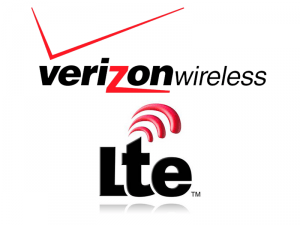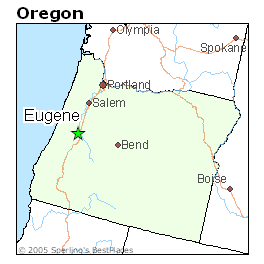AT&T announced Monday it has officially dropped its bid for Deutsche Telekom’s T-Mobile USA.
The company blamed regulator opposition for the failure of the merger, underestimating the Obama Administration’s tolerance for super-sized acquisition deals that could reduce competition and raise prices for consumers.
The real challenge for AT&T initially came not from the Federal Communications Commission, but from the U.S. Department of Justice which filed suit against the merger in August. FCC Chairman Julius Genachowski soon followed with statements that suggested the merger would have a difficult time at the Commission as well, and after a scathing report from FCC staffers was made public, Wall Street began to reduce the chances of the merger getting through to the single digits.
Had AT&T successfully merged with fourth-place T-Mobile, it would have easily become the nation’s largest and most powerful wireless provider, advancing beyond current leader Verizon Wireless.
The failure for AT&T will cost the company at least $4 billion in cash and spectrum it earlier agreed to give T-Mobile if the merger failed to complete. Industry analysts say the real winner this year will easily be Verizon Wireless, which successfully accomplished its own spectrum acquisition by quietly buying unused spectrum from some of the nation’s largest cable companies. With that spectrum now under Verizon’s control, AT&T has been reduced to signing new roaming agreements with an independent T-Mobile to share their GSM technology networks. That will do little to alleviate AT&T’s dropped call problem in large cities, analysts say, because most roaming agreements specify sharing network resources only in areas where one carrier does not provide service.
Where U.S. Cell Phone Companies Stand Today
AT&T: AT&T still retains a considerable amount of unused wireless spectrum, but some of it is located on frequency bands that provide a lower quality of service indoors. AT&T may have a difficult time finding new spectrum, because other carriers have signed partnership deals with most of the companies still holding unused frequencies. One of the largest holders of unused, warehoused spectrum is DISH Networks, and they’ve indicated no interest in selling. DISH may partner with T-Mobile now that AT&T has exited. That leaves AT&T with lobbying the government to speed up new spectrum auctions and working internally to expand their cell tower network to divide the traffic load. It’s an expensive proposition, and several Wall Street analysts are advising their clients to dump AT&T stock. Kevin Smithen, a Macquarie Capital USA Inc. analyst who downgraded AT&T to “sell” from “hold” last week advised AT&T was running out of options.
Verizon Wireless: Big Red remains in excellent shape to maintain its current market leadership position, particularly as it uses recently-acquired spectrum to bolster its 4G LTE network. A UBS analyst was more direct: It will have 56 percent more 4G spectrum than AT&T in the top 10 markets and 46 percent more in the top 100, giving it a “meaningful competitive advantage.” Verizon has also cut a deal with cable operators that could reduce competitive pressure on Verizon’s landline/FiOS network from cable companies. That fringe benefit comes courtesy of an agreement to market each others’ products to consumers.
Sprint: In addition to building its own 4G network, the company still has an agreement with Clearwire that allows Sprint to purchase the former company’s spectrum if it ever becomes available for sale. With T-Mobile still obviously up for sale, Sprint could attempt its own merger, although it may be wary of stirring the same regulatory pot that got AT&T into trouble. That leaves T-Mobile’s next buyer likely to be a regional cell phone company, a foreign firm entering the U.S. market, or an existing telecommunications company that decides a wireless division would be of benefit.
Extended Video Coverage
News of AT&T/T-Mobile Merger Failure Breaks
[flv width=”480″ height=”290″]http://www.phillipdampier.com/video/AP T-Mobile Merger Dead 12-19-11.mp4[/flv]
This report from the Associated Press informs consumers of the basics — the merger is no-go, leaving AT&T and T-Mobile as competitors, at least for now. (1 minute)
[flv width=”360″ height=”290″]http://www.phillipdampier.com/video/Bloomberg ATT Pulls T-Mobile Bid After Regulator Opposition 12-19-11.mp4[/flv]
AT&T Inc. abandoned a $39 billion takeover bid for T-Mobile USA after underestimating opposition from regulators, thwarting its ambitions to become the biggest U.S. wireless carrier. AT&T will take a pretax charge of $4 billion to reflect cash payments and other considerations due to T-Mobile-owner Deutsche Telekom AG, the Dallas-based company said in a statement today. Peter Cook, Lisa Murphy, Adam Johnson and Sheila Dharmarajan report on Bloomberg Television’s “Street Smart.” (7 minutes)
[flv width=”360″ height=”290″]http://www.phillipdampier.com/video/Bloomberg Blair Says ATT’s T-Mobile Bid Was All About Spectrum 12-19-11.mp4[/flv]
Brian Blair, an analyst at Wedge Partners Corp., talks about AT&T Inc.’s decision to abandon a $39 billion takeover bid for T-Mobile USA and Apple Inc.’s victory in a final patent-infringement ruling that bans some HTC Corp. smartphones from the U.S. Blair speaks with Emily Chang on Bloomberg Television’s “Bloomberg West.” (11 minutes)
[flv]http://www.phillipdampier.com/video/CNBC Baird on ATT T-Mobile Failure 12-20-11.mp4[/flv]
Apologists for AT&T on CNBC wring their hands over how wireless networks will get built out into rural areas now that the T-Mobile deal is dead. Will Power, R.W. Baird & Co, weighs in with a host who clearly cheerleads AT&T’s world-view. (5 minutes)
[flv]http://www.phillipdampier.com/video/CNBC ATT Drops Bid for T-Mobile 12-20-11.mp4[/flv]
AT&T drops its $39 billion bid for T-Mobile USA, with Todd Rethemeier, Hudson Square Research. AT&T’s talking points don’t fly with Rethemeier. (4 minutes)
T-Mobile’s CEO Speaks About the Merger Failure
[flv]http://www.phillipdampier.com/video/CNBC Deutsche Telekom CEO on Failed T-Mobile Merger 12-20-11.mp4[/flv]
Rene Obermann, Deutsche Telekom CEO, explains why the merger between AT&T and T-Mobile USA should have gone through. “This transaction would have solved a number of industry issues,” he says. Obermann is in friendly territory on CNBC. (8 minutes)
The Impact on Sprint
[flv width=”360″ height=”290″]http://www.phillipdampier.com/video/Bloomberg Horan Sees T-Mobile Eventually Merging With Sprint 12-19-11.mp4[/flv]
Tim Horan, an analyst with Oppenheimer & Co., talks about AT&T Inc.’s decision to abandon a $39 billion takeover bid for T-Mobile USA, thwarting its ambitions to become the biggest U.S. wireless carrier. Horan speaks with Adam Johnson and Lisa Murphy on Bloomberg Television’s “Street Smart.” (3 minutes)
[flv width=”640″ height=”500″]http://www.phillipdampier.com/video/Bloomberg Gamcos Haverty Says Sprint an Endangered Species 12-19-11.flv[/flv]
Larry Haverty, portfolio manager at Gamco Investors Inc., talks about AT&T Inc.’s decision to abandon a $39 billion takeover bid for T-Mobile USA, and the outlook for Sprint Nextel Corp. and the wireless industry. Haverty speaks with Cory Johnson on Bloomberg Television’s “Bloomberg West.” (6 minutes)
Will DISH Network Be AT&T’s Next Acquisition Target?
[flv]http://www.phillipdampier.com/video/CNBC Trading on ATT’s Failed T-Mobile Bid 12-20-11.mp4[/flv]
Shares of Dish Network up 9% in the aftermath of AT&T’s failed bid to acquire T-Mobile. Michael McCormack, Nomura telecom analyst, weighs in on whether Dish is the next target for AT&T. (2 minutes)


 Subscribe
Subscribe




